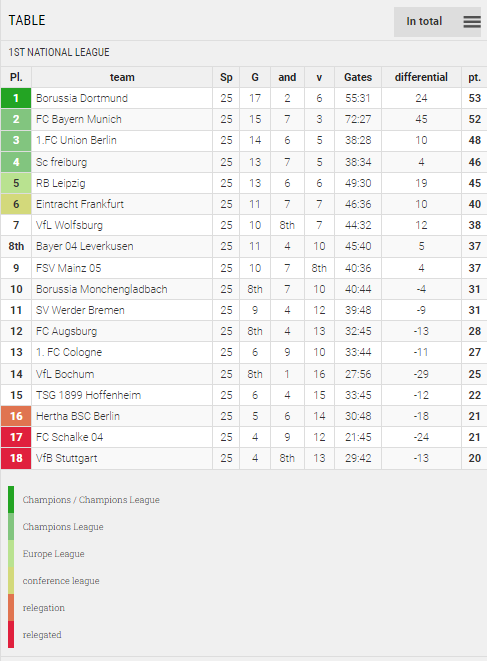Thomas Tuchel and Hans-Joachim Watzke share a complicated relationship. A documentary about the attack on the BVB team in 2017 offers new insights.
Being able to switch roles playfully is a gift for Hans-Joachim Watzke these days. Exclusively in his function as chairman of the supervisory board of the DFL, the boss of Borussia Dortmund is talking about the new coach of FC Bayern. “For the league we say: Welcome back, Thomas Tuchel!”, Watzke told the SID, and he repeated this almost word for word in the SZ interview.
Even before the most exciting Bundesliga summit for many years on Saturday (18.30/Sky), the relationship between the alpha dogs is considered complicated – despite a debate. Watzke and Tuchel have been at odds since the bombing of the BVB team six years ago: a Sky documentary (from 10 April) worth watching, which is available to the SID, offers new, partly dramatic insights.
“I think a lot of things broke down between the coach and me,” Watzke says in the documentary, running his hand thoughtfully over his face. “It probably wouldn’t have come to the separation in the summer otherwise. To believe that such a caesura doesn’t trigger anything…”, he says – and lets this sentence run out.
When the BVB bus sets off from the L’Arrivee hotel in the Höchsten district on 11 April 2017 for the Champions League quarter-final against AS Monaco, Tuchel is on board, Watzke is not – the “dissent” that Watzke will later admit in a sensational WAZ interview probably has its origins in this. The assassin Sergej W. detonates three explosive devices fitted with metal pins in a hedge; he gambled on a drop in BVB shares.
Afterwards, nothing is the same as before.
Marc Bartra is injured in the arm and fights against the threat of fainting, a bolt even smashed into a headrest. There could have been fatalities.
Ten kilometres away, Watzke doesn’t know what’s going on at first. “Is this an isolated attack – or is there something else coming? We were incredibly scared, of course,” he says in the documentary. “Every other thought I could grasp at that stage was: if something goes off right away and people die, that’s a disaster.”
He speaks reassuringly to the spectators on the pitch later, reporting that Tuchel “was also shocked, of course. An explosion was right on his side.”
Sporting action must be taken quickly: UEFA is putting pressure on. “There was (…) only this one truth: Either we play the next night or we withdraw.” And, as Watzke describes it, in a subtle way politics is also pushing gently up to the Chancellor: “It would be nice if we didn’t have to bow to terror.
The game is played, the shocked professionals can barely get the ball straight, Sven Bender scores an own goal at 2:3. Afterwards, Tuchel complained publicly: “We had hoped for more time to come to terms with this. We didn’t get it.” He and the team were not asked. Nuri Sahin says: “I didn’t give a shit about football that day.” After all, he says, 24 hours earlier he still thought terrorists would storm the bus and “shoot” players.

Watzke is irritated. According to the club’s management, there would have been a chance to report up at any time, playing was not wanted. Tuchel, it seems to him, is speaking with a double tongue. A smouldering conflict – the coach had fallen out with chief scout Sven Mislintat – is eating deeper. The rift can no longer be mended.
“A heap of broken china” is how Sportschau describes it in retrospect: The separation from Tuchel after the Cup victory came “as surprising as the sunrise on 30 May”. On Saturday, the Tuchel personnel issue will bring “explosiveness squared” to the already charged summit duel.
